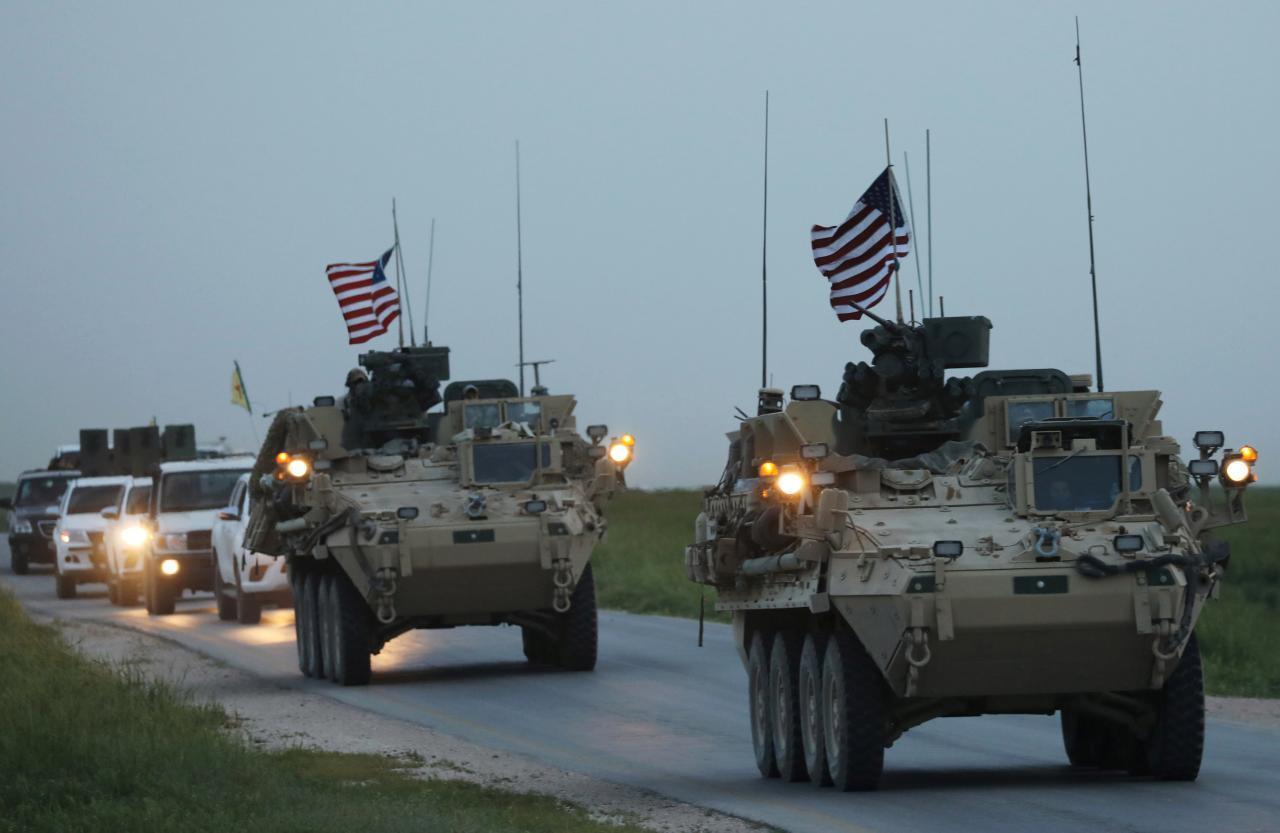
The U.S.-led coalition is working with a Syrian Kurdish group to set up a new border force of 30,000 personnel, the coalition said on Jan. 14, a move that has added to Turkey’s anger over U.S. support to the group in Syria.
A senior Turkish official told Reuters the U.S. training of the new “Border Security Force” is the reason that the U.S. charge d’affaires was summoned in Ankara on Jan 10. The official did not elaborate.
The force, whose inaugural class is currently being trained, will be deployed at the borders of the area controlled by the Syrian Democratic Forces (SDF) - made up mostly of People’s Protection Units (YPG) militants.
In an almost immediate reaction to the American move, Presidential Spokesperson İbrahim Kalın said that Turkey has the right to defend itself against "terror groups" on its own terms and time, and that the U.S. stance on the issue is "unacceptable," state-run Anadolu Agency reported.
"Turkey will continue to take all necessary precautions aligned with its national interest to preserve its national security," Kalın added.
U.S. support for the SDF has put enormous strain on ties with NATO ally Turkey, which views the YPG as a terrorist group for its link with the Kurdistan Workers’ Party (PKK).
In an email to Reuters, the coalition’s Public Affairs Office confirmed details of the new force reported by The Defense Post. About half the force will be SDF veterans, and recruiting for the other half is underway, the coalition’s Public Affairs Office said.
The force will be deployed along the border with Turkey to the north, the Iraqi border to the southeast, and along the Euphrates River Valley, which broadly acts as the dividing line separating the U.S.-backed SDF and Syrian government forces backed by Iran and Russia.
The coalition said the BSF would operate under SDF command and around 230 individuals were currently undergoing training in its inaugural class.
“Efforts are taken to ensure individuals serve in areas close to their homes. Therefore, the ethnic composition of the force will be relative to the areas in which they serve.
“More Kurds will serve in the areas in northern Syria. More Arabs will serve in areas along the Euphrates River Valley and along the border with Iraq to the south,” the coalition’s Public Affairs Office said.
“The base of the new force is essentially a realignment of approximately 15,000 members of the SDF to a new mission in the Border Security Force as their actions against ISIS [Islamic State of Iraq and the Levant - ISIL] draw to a close,” it said.
“They will be providing border security through professionally securing checkpoints and conducting counter-IED operations,” it said, adding that the coalition and SDF forces were still engaging with ISIL pockets in Deir al-Zor province.
IED stands for improvised explosive device.
The United States has about 2,000 troops in Syria fighting ISIL, and has said it is prepared to stay in the country until it is certain the jihadist group is defeated, that stabilization efforts can be sustained, and there is meaningful progress in U.N.-led peace talks on ending the conflict.
The Syrian government in Damascus had declared the U.S. an illegal occupation force and its SDF allies as “traitors.”